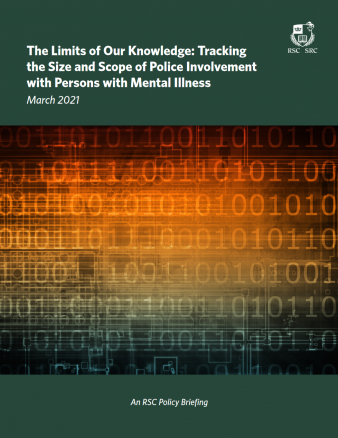Following protests of police involvement in several high-profile deaths of individuals experiencing a mental health crisis, a number of Canadian individuals and groups have advocated in response for various policy positions—ranging from enhanced police training and new policing programs to reallocating police funding to healthcare and social work groups and, in some instances, outright abolishment of public police. Consistently lacking from much of the public discourse is a thorough understanding of the myriad of ways in which policing intersects with mental health issues, the prevalence of mental health issues within police calls for service, the nature of interactions between persons with mental illness (PMI) and police, and the unique challenges in this area facing Indigenous communities in Canada.
“Consistently lacking from much of the public discourse is a thorough understanding of the myriad of ways in which policing intersects with mental health issues, the prevalence of mental health issues within police calls for service, the nature of interactions between persons with mental illness (PMI) and police, and the unique challenges in the area facing Indigenous communities in Canada,” said Laura Huey, Lorna Ferguson and Adam Vaughan.
The Royal Society of Canada (RSC) Policy Briefing entitled 'The Limits of Our Knowledge: Tracking the Size and Scope of Police Involvement with Persons with Mental Illness' is now freely and publicly available here.

